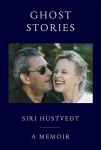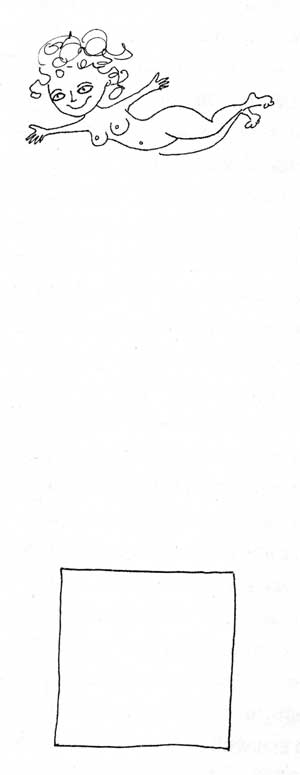
Ghost Stories
Ghost Stories is Siri Hustvedt’s most personal book yet, a searing and intimate meditation on grief, memory, and enduring love, written in the aftermath of the death of her husband, Paul Auster.

Mothers, Fathers and Others
Feminist philosophy meets family memoir in this essay collection from Siri Hustvedt, an exploration of the shifting borders that define human experience, including boundaries we usually take for granted which turn out to be far less stable than we imagine. On sale now.

Memories of the Future
A provocative, wildly funny, intellectually rigorous and engrossing novel, punctuated by Siri Hustvedt's own illustrations - a tour de force by one of America's most acclaimed and beloved writers.

The Delusions of Certainty
Originally published in her collection A Woman Looking at Men Looking at Women, The Delusions of Certainty exposes how the age-old, unresolved mind-body problem has shaped - and often distorted and confused - contemporary thought in neuroscience, psychiatry, genetics, artificial intelligence, and evolutionary psychology.

A Woman Looking at Men Looking at Women: Essays on Art, Sex, and the Mind
In a trilogy of works brought together in a single volume, Siri Hustvedt demonstrates the striking range and depth of her knowledge in both the humanities and sciences. Armed with passionate curiosity, a sense of humor, and insights from many disciplines, she repeatedly upends received ideas and cultural truisms.

The Blazing World
From the internationally bestselling author, praised for her “beguiling, lyrical prose” (The Sunday Times Review, UK), comes a brilliant, provocative novel about an artist, Harriet Burden, who after years of being ignored by the art world conducts an experiment: she conceals her female identity behind three male fronts.

Living, Thinking, Looking
Living, Thinking, Looking brings together thirty-two essays written between 2006 and 2011, in which the author culls insights from philosophy, neuroscience, psychology, psychoanalysis, and literature.

The Summer Without Men
Mia Fredrickson, the wry, vituperative, tragic comic, poet narrator of The Summer Without Men, has been forced to reexamine her own life. One day, out of the blue, after thirty years of marriage, Mia's husband, a renowned neuroscientist, asks her for a "pause." This abrupt request sends her reeling and lands her in a psychiatric ward.

The Eight Voyages of Sinbad
The journeys of Sinbad the Sailor have invited dreams and fantasizing by all who have been exposed to his adventures, irrespective of age or inclination, since they were included among the Tales of 1,001 Nights at the beginning of the 19th century. They have been brought to the screen, converted into music, comics, and animated drawings, and are now revisited by Siri Hustvedt.

The Shaking Woman or a History of My Nerves
In this unique neurological memoir Siri Hustvedt attempts to solve her own mysterious condition.

Embodied Visions: What Does it Mean to Look at a Work of Art?
Art is not possible without the human capacity of reflective self-consciousness, and looking at a work of art always partakes of mirroring—one’s sense of another person’s intention in the object. With such a theme at its center, this work shows how the meanings created in the perception of art are not purely cognitive but bodily and creative.

The Sorrows of an American
When Erik Davidsen and his sister, Inga, find a disturbing note among their late father’s papers, they believe he may be implicated in a mysterious death. The Sorrows of an American tells the story of the Davidsen family as brother and sister unbandage its wounds in the year following their father’s funeral.

A Plea For Eros
Is it possible for a woman in the twentieth century to endorse the corset, and at the same time approach with authority what it is like to be a man? Hustvedt does. Writing with rigorous honesty about her own divided self, and how this has shaped her as a writer, she also approaches the works of others–Fitzgerald, Dickens, and Henry James–with revelatory insight, and a practitioner’s understanding of their art.

Mysteries of the Rectangle
Here, Hustvedt concentrates her narrative gifts on the works of such masters as Francisco de Goya, Jan Vermeer, Jean-Baptiste-Siméon Chardin, Gerhard Richter, and Joan Mitchell. Hustvedt is concerned with the very act of looking and the limitless rewards to be gleaned from sustained, careful attention.

What I Loved
What I Loved begins in New York in 1975, when art historian Leo Hertzberg discovers an extraordinary painting by an unknown artist in a SoHo gallery. He buys the work; tracks down the artist, Bill Wechsler; and the two men embark on a life-long friendship.




